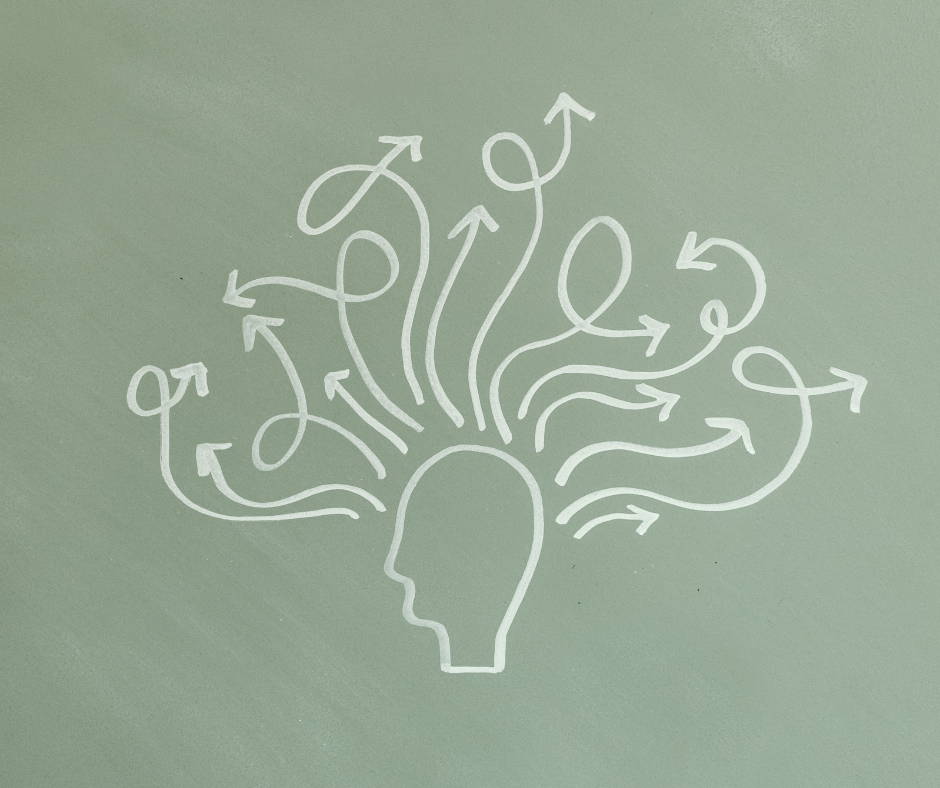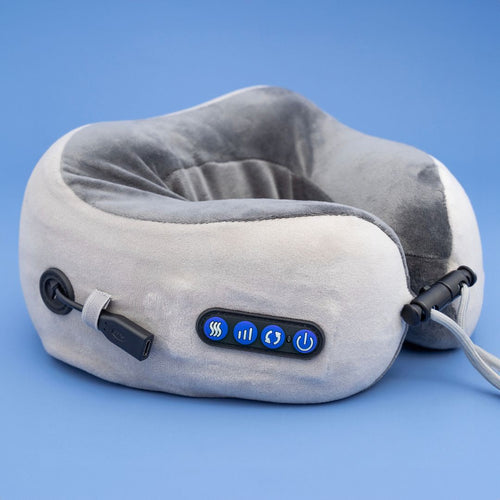What is the Mind-Body Connection?
By Holly Grace Callis | Published on July 14th, 2025

Ever notice how worry makes your heart beat fast? Or how joy makes you feel light and energetic? This is the mind-body connection. It’s how your thoughts and feelings affect your physical health, and your body also affects how you feel mentally.
Scientists study this connection every day. They find new ways that mental health and physical health work together. What makes this connection so important is that your immune system gets stronger when you feel calm and happy, and weaker when you don't. Understanding this connection helps you feel better and use it to your advantage in your daily life.
This article explains the mind-body connection. You'll learn how it works, find ways to make it stronger, and help your overall health and well-being.
What is the Mind-Body Connection?
The mind-body connection is simple: mental health and physical health work as one team. Your thoughts change how your body feels, and your body changes how you think and feel.
Your brain sends messages to every part of your body. This mind-body connection uses special chemicals called hormones. It uses brain chemicals, too. These messages travel through your nerves. While this sounds complex, this biological functioning happens all the time without you thinking about it.
The Nervous System and Emotional Responses
Your autonomic nervous system controls how your body responds to feelings. When you feel danger, your body starts the fight-or-flight response. Stress hormones like cortisol flood your body, making your heart beat faster and your breathing heavy.
This is the same system that helped people long ago stay safe from wild animals. Today, chronic stress from work or school can keep this system turned on too much. When stress stays high for a long time, it hurts your immune function. It can also cause problems with your heart and stomach. Your cardiovascular health can suffer, too.
Your parasympathetic nervous system helps you calm down. It turns on when you feel safe. It helps your body heal and rest. Understanding both systems helps you see why calming your mind helps your body feel better.
How is My Mind Connected to My Body?

Washington University School of Medicine found that brain parts that control movement connect directly to the parts that control heart rate and blood pressure. This proves the mind-body connection is real in your body and has major effects on your body.
Your feelings change your bodily functions right away. For example, worry can raise your blood pressure automatically. You don't have to think about it. Physical pain can make you feel sad, while exercise often makes you feel happier and gives you mental clarity and boosts endorphins, the feel-good hormones.
The Immune System and Mental State
Since your immune system reacts to how you feel, chronic stress can make your immune system function poorly. High stress hormones actually stop your body from making enough white blood cells. These cells fight germs and disease.
Positive mental states help your immune system stay strong. When you feel calm or happy, your body makes helpful chemicals that boost your immune response. They also reduce swelling in your body.
Research in psychological science shows this clearly. People who practice stress reduction get sick less often. They recover faster when they do get sick. This proves that managing mental stress helps your body's defense system. Mind-body medicine uses these connections to help people with mental illness and physical problems.
Stress and Chronic Conditions
Chronic stress hurts your body over time. High stress hormones can cause high blood pressure, which can lead to heart disease and stomach problems. Your immune strength also gets weaker overall.
The mind-body connection works both ways with ongoing health problems. Physical pain from ongoing conditions makes depression and anxiety worse. Mental strain makes physical symptoms stronger. These cycles negatively affect your overall health.
Mind-body therapies work well because they treat both parts. When you treat both your mind and body, you work with your natural healing. This holistic approach helps alleviate symptoms of many health problems. It also helps with negative emotions like fear, anger, and sadness.
What Are Examples of Mind-Body Exercises?

Mind-body exercises use your mental focus to help your body. They promote stress reduction and better overall health, giving real benefits for mental health treatment and improved physical state.
Deep Breathing and Breath Control
Deep breathing is easy to learn. You breathe in slowly and deeply, and exhale the same. This steady, slow breathing tells your nervous system it's safe to relax.
Breath control works by impacting a nerve that connects your brain to important organs. When you breathe deeply, your heart slows down. Your muscles relax. The fight or flight response calms down.
Try the 4-7-8 breathing exercise. Breathe in for 4 counts. Hold for 7 counts. Breathe out for 8 counts. You can do this anywhere, at your desk or in the middle of an exam. It gives quick stress relief. You can also practice every day to manage stress better in your daily life.
Progressive Muscle Relaxation
Progressive muscle relaxation helps you become aware of tension in your body. First, you tense different muscle groups. Then, you relax them. Doing so helps you feel the difference between tight and relaxed muscles.
Scientists studied 46 different research papers about this method. They found that progressive muscle relaxation reduces stress and anxiety. It helps you sleep better and improves your overall well-being.
The practice helps find self-awareness when it comes to how stress affects your body. This awareness allows you to better handle negative emotions and supports better bodily functions like digestion.
Body Scan Meditation and Regular Meditation Practice
Body scan meditation helps you notice bodily sensations all over your body. Regular meditation practice reduces stress hormones and boosts your body's natural defense system. It also helps you respond better to hard situations. That's why mindfulness-based stress reduction programs typically use body scan methods. They help people with chronic pain, weakened immune function, and anxiety.
During body scan meditation, you move your attention from your toes to your head. You notice what you feel without trying to change it. This helps you understand how stress affects your body. Traditional Chinese medicine has used similar practices for thousands of years. These practices help restore balance in your body.
Movement-Based Practices
Physical postures like yoga and tai chi combine mental focus with gentle movement. These practices use breath control and mindful movement together. They help both mental stress and physical tension.
Yoga is another popular movement-based exercise. Research shows it helps with anxiety, depression, and chronic pain. It's also beneficial for cardiovascular health. Yoga combines physical postures, breathing, and meditation. This treats many parts of health at once.
Walking meditation is another good, more accessible option. Focus on how walking feels, how your feet touch the ground, and the air on your skin. This reduces muscle tension and calms your mind while you get gentle exercise.
How to Activate Your Mind-Body Connection

Building a stronger mind-body connection takes practicing mindfulness every day. Making small changes every day will give you more self-awareness of how your thoughts affect your body.
Pay attention to how emotions show up in your body. When you practice mindfulness, you start to see patterns. You learn to influence your body's responses on purpose.
Start with Small Changes
Simple practices help you notice your mind-body connection. For example, mindful eating means paying attention to your food. Notice how it tastes and feels. This aids in your digestion and helps you identify your body's hunger signals better.
Take breathing breaks during your day. Check in with your body. Even three deep breaths can change how you feel. They reduce physical tension when you feel stressed.
Journaling is another popular method. Write about your emotions and body feelings, and look for patterns in how your mind and body connect. You might notice that worry makes your chest feel tight, while excitement gives you energy. When you notice negative emotions early, you can alleviate symptoms before they get worse.
Combine Mental and Physical Cues
Learn to notice physical tension when you feel stressed. Your shoulders might rise or your jaw might clench. Use these as signals to take deep breaths and focus on relaxing those muscles with purpose.
Catch stress early before it builds up, addressing the negative thoughts and the physical signs. Work with your body's natural healing through mind-body connectivity.
You can also create mental reminders that help you relax. Feel your feet on the ground and take a deep breath. If you like using tech, set phone alarms as a reminder to check your body for tension.
How to Reset Your Mind, Body, and Soul

A holistic approach means caring for your whole self. True health includes mental well-being and physical health. You also need a sense of purpose, which many people refer to as spiritual wellness.
Ways you can do this include:
-Create spacing for rest and healing
-Removing sources of chronic stress when you can
-Doing practices that help with healing and balance
Traditional Chinese medicine focuses on restoring balance between mind, body, and spirit.
Create a Restorative Routine
Good sleep helps your mind and body connection. Your nervous system resets during sleep, and your body repairs itself. Your brain also stores memories, your immune system makes cells that fight infection, and stress hormones return to normal levels.
Many people find spending time in nature to be a powerful reset, which the research backs up. A study from the American Psychological Association shows this reduces stress hormones, lowers heart rate, and perks up your mood. Fresh air, sunlight, and peaceful places help reset your stress response.
Diet is also a major factor in recovery. Your gut and brain connect through special pathways. Whole foods with good nutrients help mental clarity and physical energy. Processed foods can cause swelling that affects your mood and body.
Good relationships with friends and family have also been shown to support immune function. They help you handle stress better, and social support gives you emotional tools for life's challenges.
Disconnect to Reconnect
Take breaks from phones and computers. Constant stimulation keeps your stress response active. Digital breaks let you focus on your inner feelings and surroundings, giving you balanced emotional states.
Instead of turning to the screen, try grounding practices. Walk barefoot on grass or dirt. Sit quietly in nature. These activities help reset your stress response and improve physical and mental health.
Try creative activities like art, music, or writing to help you express emotions and stimulate different parts of your brain. Creative work often creates the relaxed focus that improves your mind-body connection.
Why a Strong Mind-Body Connection Supports Overall Health

Developing a strong mind-body connection creates better long-term health. When your mental and physical systems work together well, you handle life's challenges better. You heal and grow more easily.
Benefits include better immunity and emotional control. You make healthier choices more easily. These benefits build over time. They create positive cycles that support continued wellness.
Long-Term Immune System Support
A good mind-body connection keeps your immune system working well. Balanced stress responses help your body heal. When you manage stress with mind-body practices, you reduce ongoing swelling. Chronic swelling can weaken your immune response over time.
Regular stress reduction increases your body's ability to make antibodies. Mental practices directly help your body protect and heal itself. You get sick less often, recover faster, and even respond better to vaccines.
Good emotional states and immune function work together to prevent problems. Your body keeps the resources it needs to handle health challenges early. This part of mind-body wellness offers special value for staying healthy long-term. These practices can enhance emotional well-being by giving you tools to manage difficult feelings.
Emotional Resilience
A strong mind-body connection helps you handle mental health conditions and mood disorders better. You get multiple ways to manage difficult emotions and their physical effects. When you understand how emotional states show up in your body, you have more options for dealing with hard mental states.
Mind-body therapies like cognitive behavioral therapy focus on how emotions show up as physical sensations. Lasting emotional healing often needs attention to both mental and physical aspects.
Increased awareness from mind-body practices helps you notice emotional problems early. You can get help sooner and prevent symptoms from building up. These symptoms can hurt both mental and physical health. Mind-body medicine approaches treat conditions through these connected pathways. They support both positive mental states and physical health outcomes.
Conclusion

The mind-body connection gives you powerful tools for better health and well-being. Understanding how your thoughts, emotions, and physical responses work together helps you develop practices. These practices reduce stress, enhance emotional well-being, and support your immune function.
Small, steady practices make big differences. Deep breathing, mindful awareness, and regular movement can improve how you feel mentally and physically. Your mind-body connection always works. The question is how purposefully you choose to work with it.
You can use this connection to track ongoing stress, improve overall health, or increase awareness of your mental and emotional states. Strengthening your mind-body connection offers a holistic approach. Start small. Be steady. Pay attention to how your physical and emotional health support each other on your journey to greater wellness.
At Callixe, we understand the powerful link between mental and physical well-being. Our wellness tools are designed to support your mind-body connection through gentle, effective methods that align with your body's natural healing systems.
Ready to take the next step? Explore Callixe products today and discover how targeted support can find a deeper mind-body connection and promote a healthy lifestyle.










